Introduction
Here's a roadmap to guide you on your journey towards becoming an AI Test Engineer. Remember, this is adaptable based on your existing knowledge and experience.
Phase 1: Laying the Groundwork
1. Software Testing Foundations:
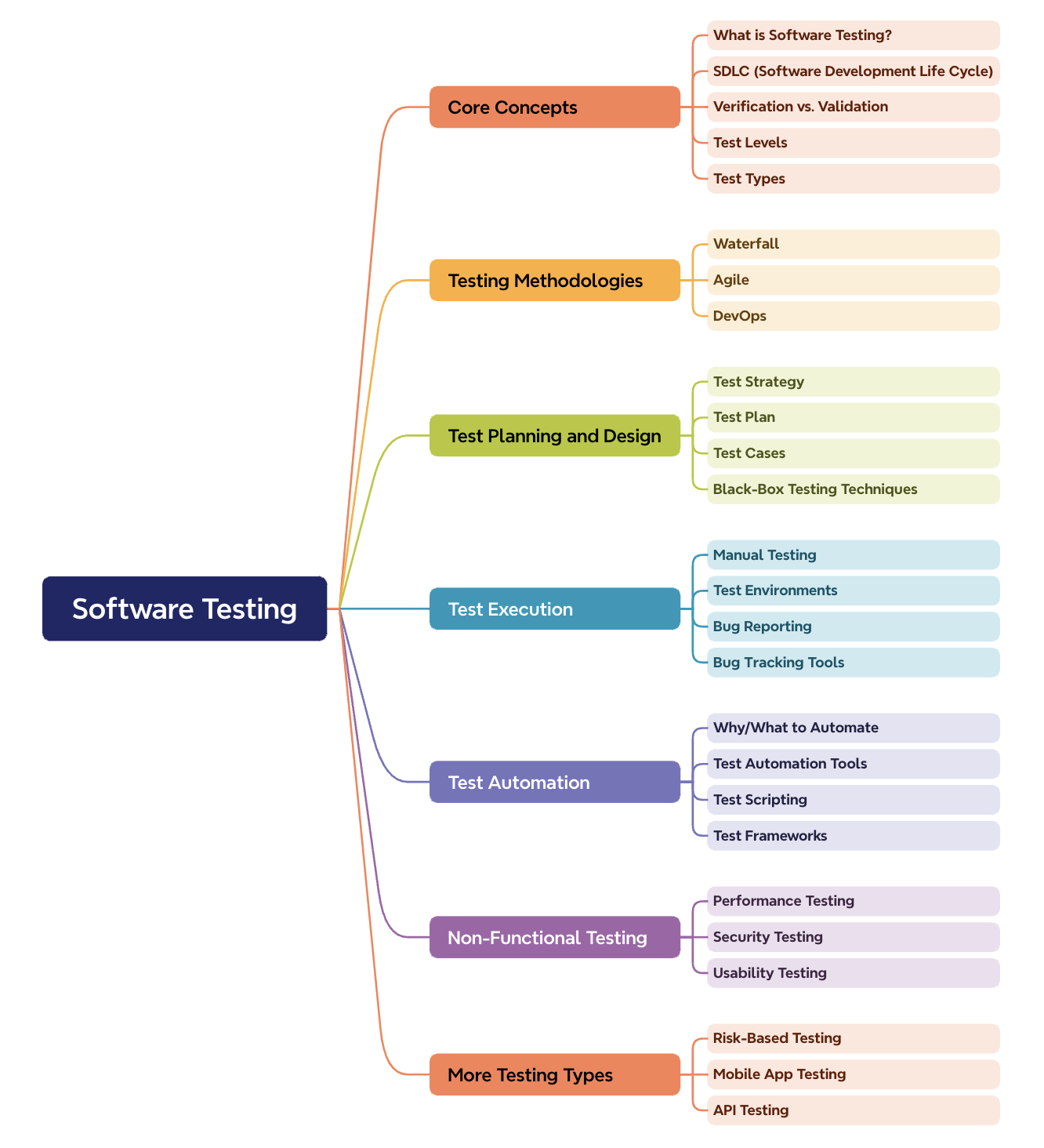
📝 See Details: Software Testing Roadmap
2. Using Generative AI for Software Testing
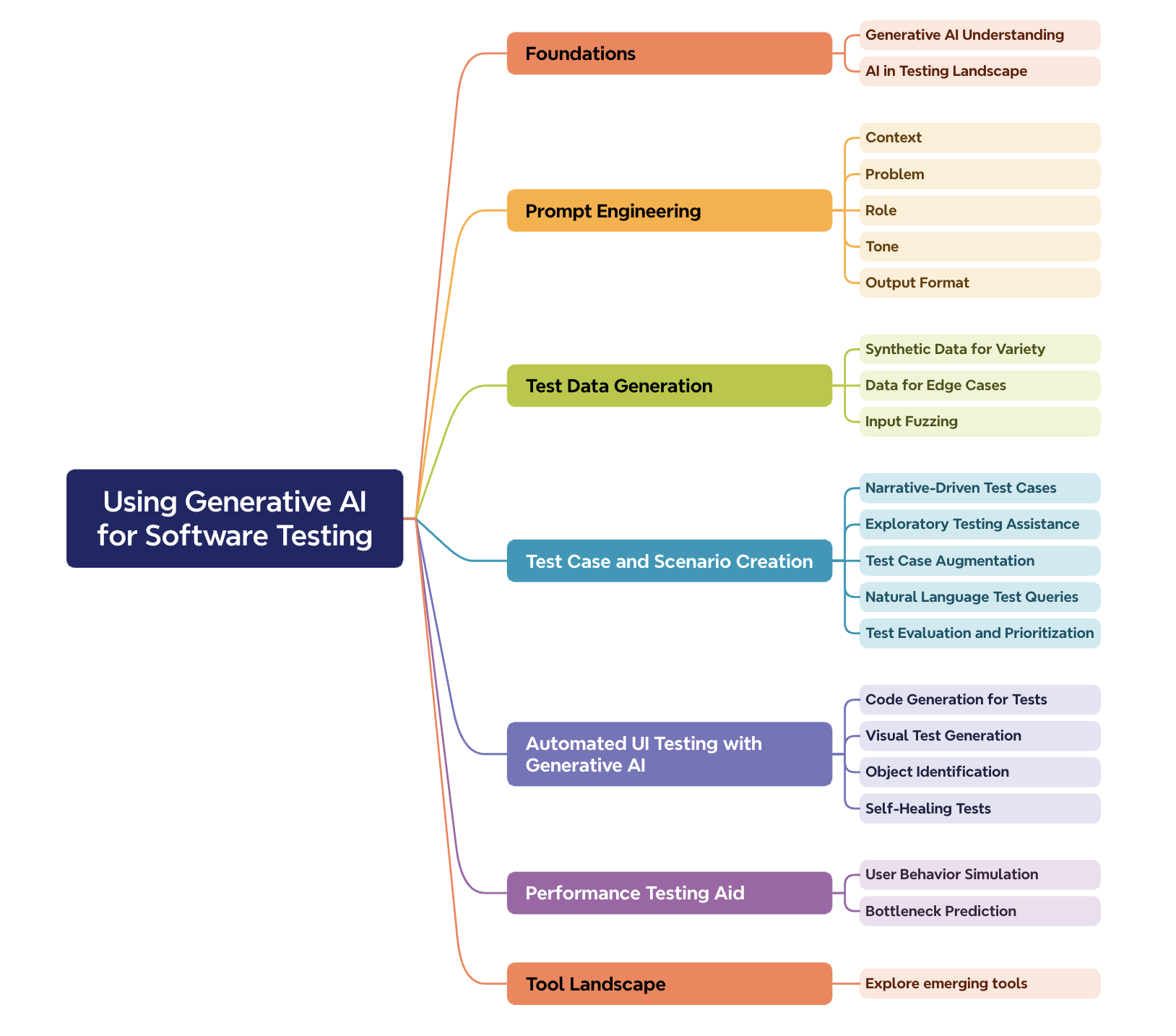
📝 See Details: Generative AI Roadmap
3. Understanding AI Fundamentals
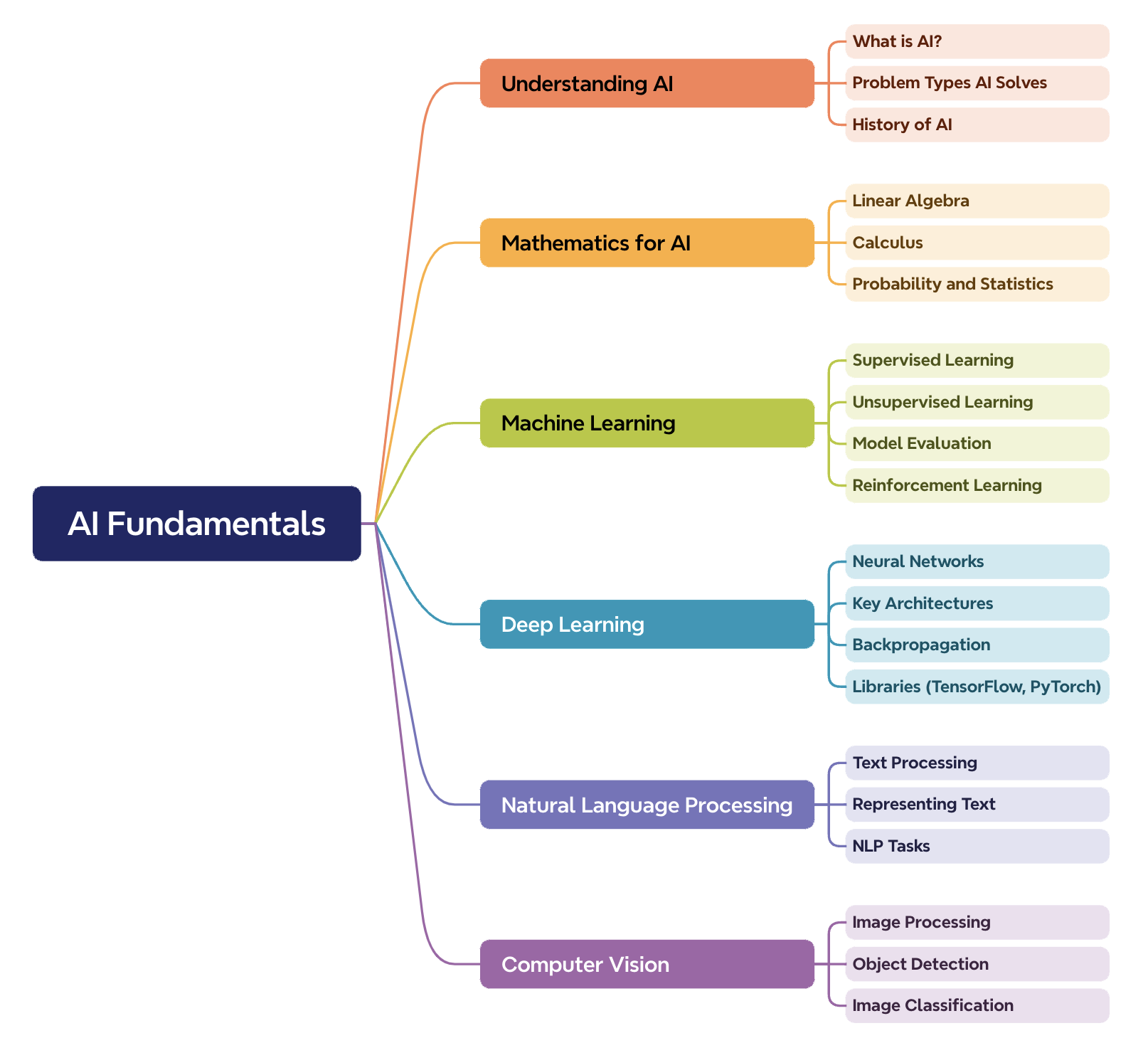
📝 See Details: AI Fundamentals Roadmap
4. Exploring the LLMs World
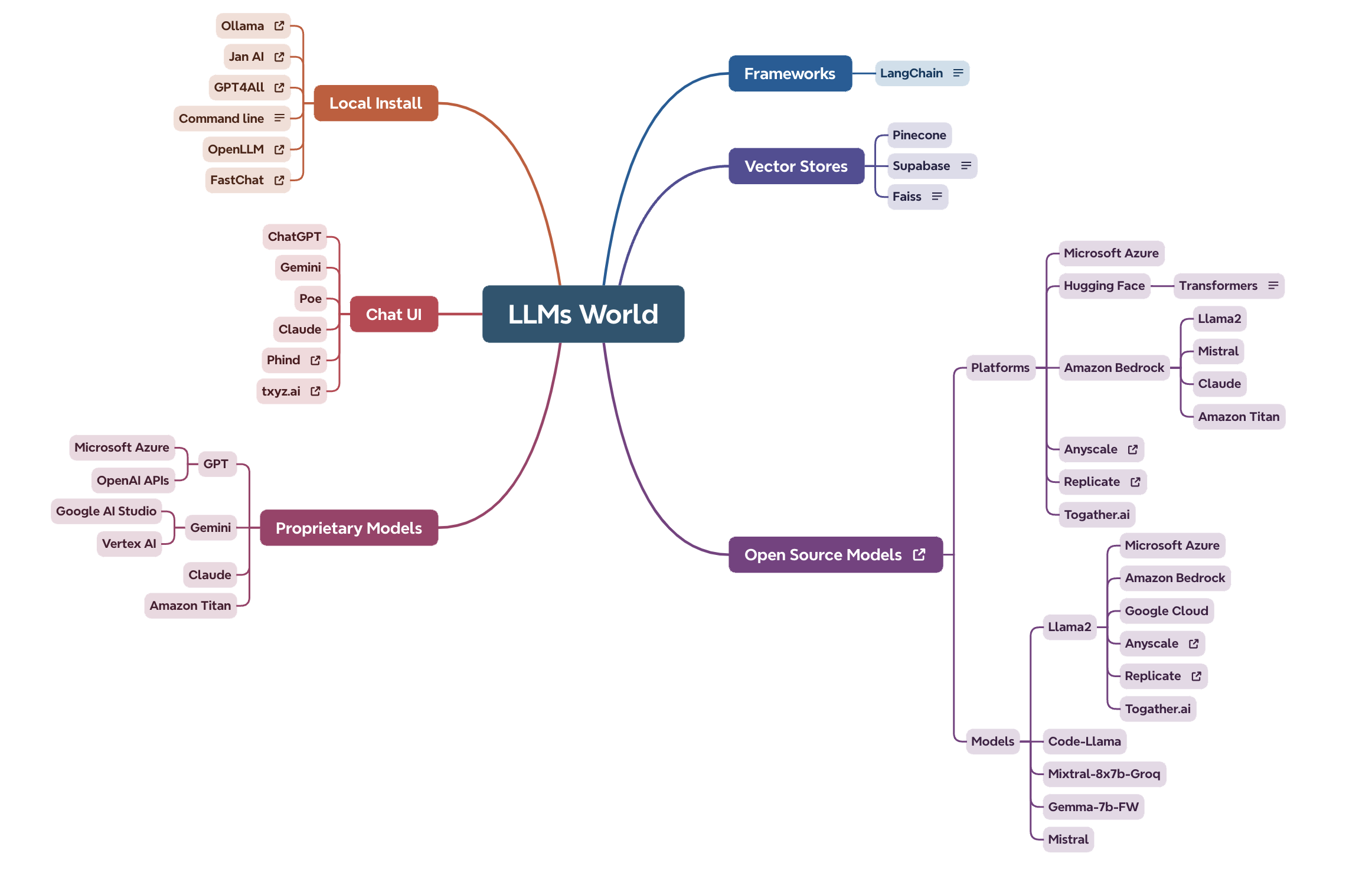
📝 See Details: The LLM World
5. Programming Proficiency
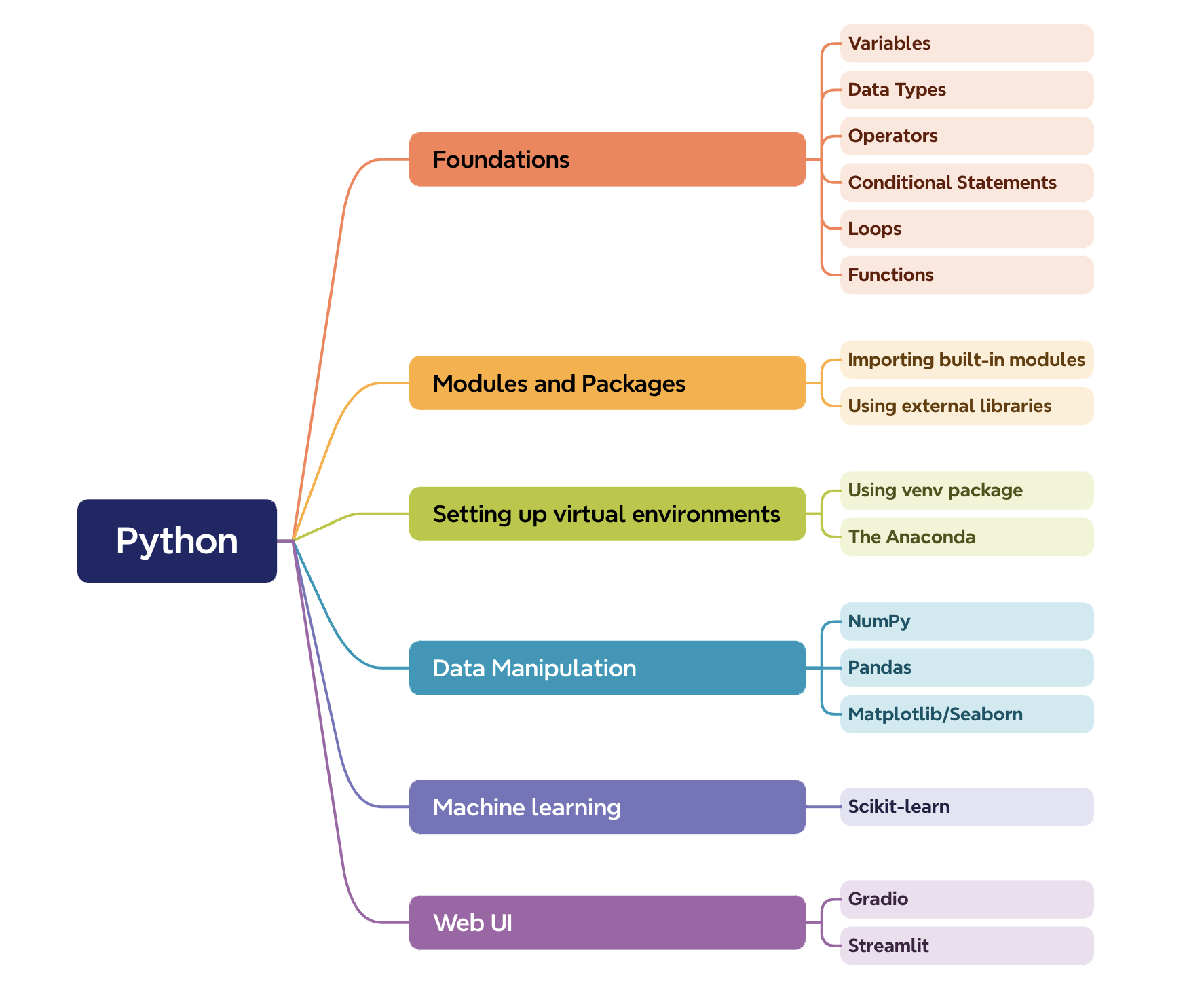
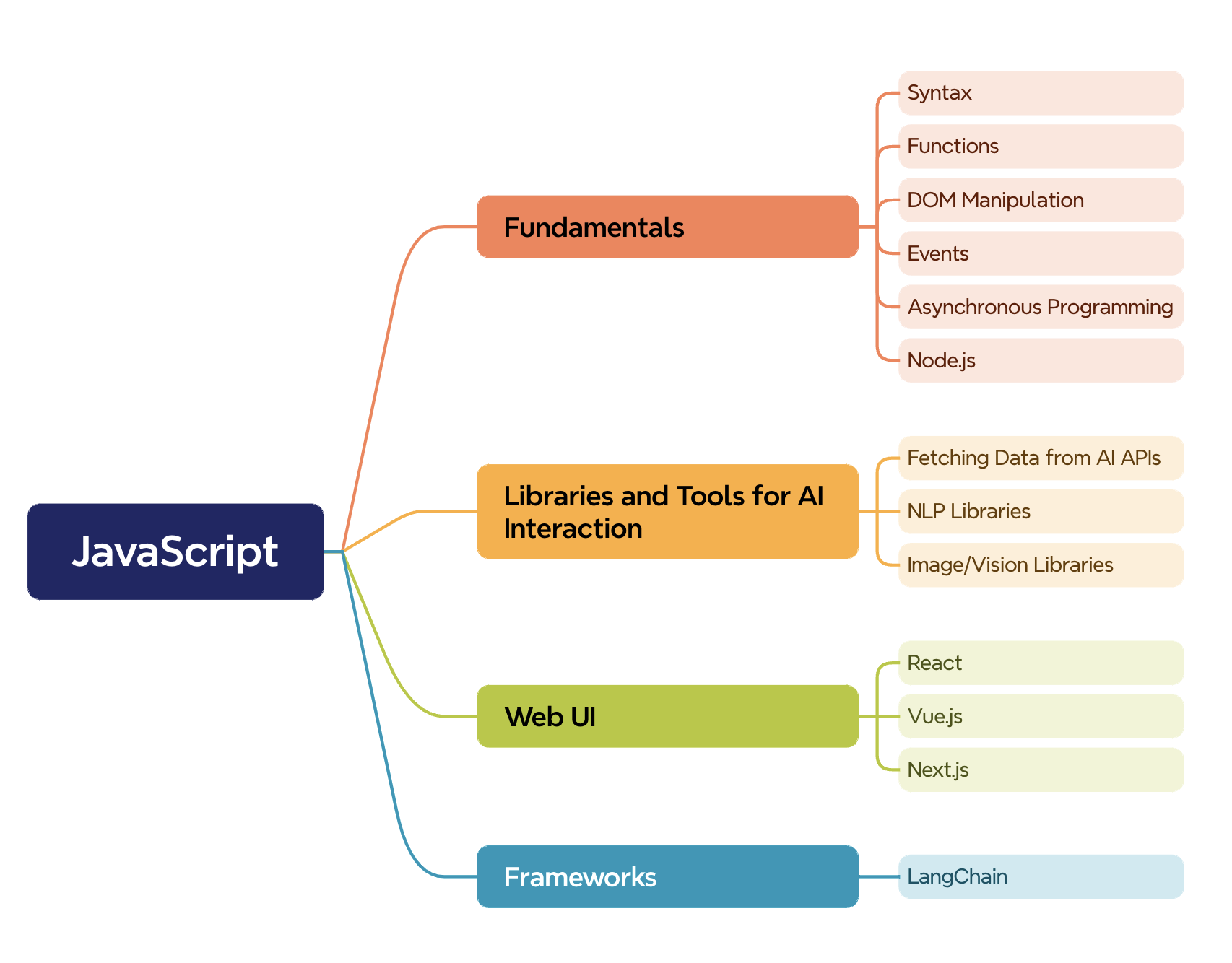
📝 See Details: Learn Python & JS
Phase 2: Specializing in AI Testing
Data Quality and Preparation
- Data bias: Identifying and mitigating bias in datasets.
- Data cleaning and preprocessing: Ensuring data is suitable for AI models.
Model Evaluation & Metrics:
- Accuracy, Precision, Recall, F1-score: Understanding when to use which metric.
- ROC Curves, Confusion Matrices: Visualizing model performance.
- Overfitting/Underfitting: Diagnosing and addressing these problems.
AI-Specific Testing Challenges
- Explainability: Testing the reasoning behind AI decisions.
- Robustness: Testing how models handle unexpected or adversarial inputs.
- Fairness: Ensuring AI systems don't perpetuate discrimination.
Phase 3: Building Experience and Expertise
Certifications:
Practice Projects:
- Open Datasets: Find datasets on sites like Kaggle and UCI Machine Learning Repository.
- Open-source AI projects: Contribute to testing aspects of existing projects.
Networking and Community:
- Online Forums: Interact, learn, and find potential leads.
- Conferences and Meetups: Stay up-to-date and build connections.
Portfolio Development:
- Document projects: Showcase your testing strategies, results, and insights.
- GitHub Profile: Share your code and contributions.
Important Additional Skills:
- Cloud Computing: Knowledge of platforms like AWS, Azure, or GCP.
- Visual Testing: Understanding visual testing techniques for UI-based AI systems
- Critical Thinking: The ability to analyze problems and design creative test scenarios
- Communication Skills: Practice explaining technical concepts clearly to stakeholders.
Remember: Becoming an AI Test Engineer takes time and dedication. This roadmap provides a framework; your commitment and hard work will drive your success!